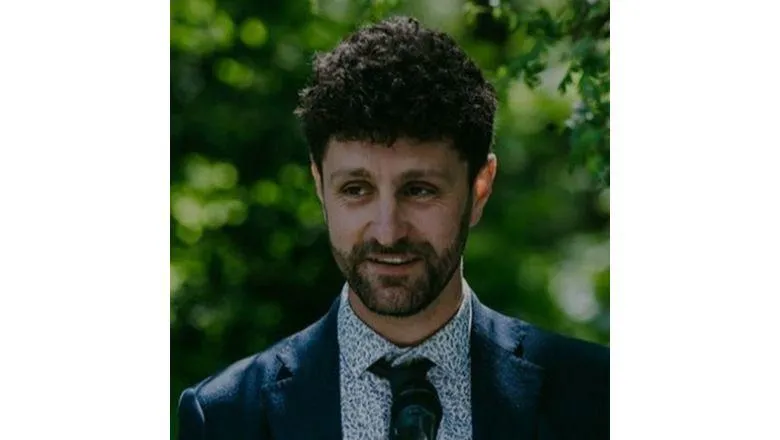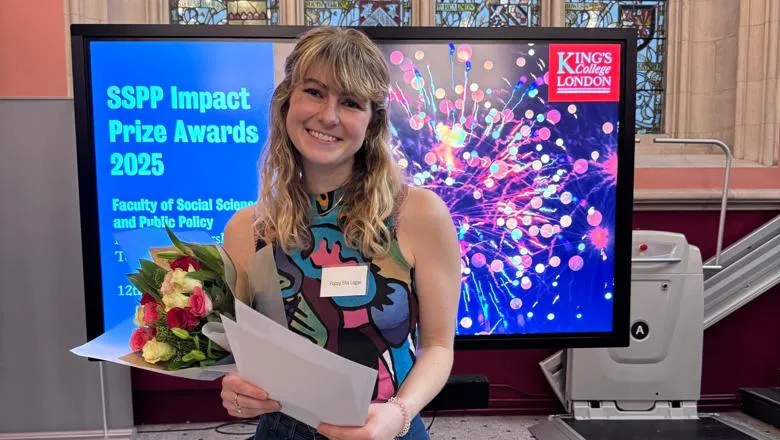
Dr Jon Roozenbeek
Lecturer in Psychology and Security
Research interests
- Conflict
- Security
Biography
Jon works on the psychology of intergroup conflict and (digital) media effects. His research covers topics such as understanding and countering mis- and disinformation, group identity and ideology building, war propaganda (especially in Ukraine and Russia), the psychological drivers of authoritarianism, risk assessment and mitigation, institutional trust, and digital technology use. He has recently published two books: The Psychology of Misinformation, and Propaganda and Ideology in the Russian-Ukrainian War.
Before joining King’s, Jon held research positions at the University of Cambridge, where he worked on the psychology of misinformation and developed and tested interventions (such as online games) to counter common forms of manipulation. He holds a PhD in Slavonic Studies (2020), also from the University of Cambridge. His dissertation examined media and identity building in wartime Donbas after the 2014 Euromaidan revolution.
At War Studies, Jon is part of the NIHR Health Protection Research Unit (HPRU) in Emergency Preparedness and Response.
Research Interests
- The psychology of misinformation, manipulation, and propaganda
- The Russian-Ukrainian war (2014 – present)
- Soviet, Russian, Donbas, and Ukrainian history, politics, and media
- Social identity and intergroup conflict
- Digital public policy (e.g., online harms, extremism and radicalisation, vaccine hesitancy)
- Social media networks and echo chambers
- Psychological drivers of authoritarianism
- Risk assessment and mitigation (e.g., climate change)
Teaching
Jon teaches two MA modules at King’s: Disasters and Extreme Events (7SSWN360) and Responding to Terrorism (7SSWN023).
He is currently supervising two PhD students:
- Yara Kyrychenko, University of Cambridge (Gates Scholarship): Understanding and Reducing Polarisation on Social Media
- Malia Marks, University of Cambridge (Harding Scholarship): Cross-Cultural Measurement of Authoritarianism and Political Intolerance
Publications
Books:
- Roozenbeek, J., & van der Linden, S. (2024). The Psychology of Misinformation. Cambridge University Press.
- Roozenbeek, J. (2024). Propaganda and Ideology in the Russian-Ukrainian War. Cambridge University Press.
Research articles:
Google Scholar page: https://scholar.google.com/citations?user=MD5IiCsAAAAJ&hl=en
Selected publications:
- Kyrychenko, Y., Brik, T., van der Linden, S., & Roozenbeek, J. (2024). Social identity correlates of social media engagement before and after the 2022 Russian invasion of Ukraine. Nature Communications.
- Roozenbeek, J., Remshard, M., & Kyrychenko, Y. (2024). Beyond the headlines: On the efficacy and effectiveness of misinformation interventions. Advances in Psychology, 2, e24569. https://doi.org/10.56296/aip00019
- Ecker, U.K.H., Roozenbeek, J., van der Linden, S., Tay, L.Q., Cook, J., Oreskes, N., & Lewandowsky, S. (2024). Misinformation poses a bigger threat to democracy than you might think. Nature, 630, 29-32. https://doi.org/10.1038/d41586-024-01587-3
- Roozenbeek, J., van der Linden, S., Goldberg, B., Rathje, S., & Lewandowsky, S. (2022). Psychological inoculation improves resilience against misinformation on social media. Science Advances, 8(34). https://doi.org/10.1126/sciadv.abo6254
- Roozenbeek, J., & Zollo, F. (2022). Democratize social-media research—with access and funding. Nature, 612(7940), 404. https://doi.org/10.1038/d41586-022-04407-8
Book chapters:
- van der Linden, S., & Roozenbeek, J. (2023). Fake news and the COVID-19 pandemic. In Miller, M.K. (Ed.) The Social Science of the COVID-19 Pandemic: A Call to Action for Researchers. Oxford: Oxford University Press.
- van der Linden, S., & Roozenbeek, J. (2022). A psychological vaccine against fake news: From the lab to worldwide implementation. In Mazar, N., & Soman, D. (Eds.) Behavioral Science in the Wild. Toronto: University of Toronto Press.
- Roozenbeek, J., & van der Linden, S. (2020). Vaccineren tegen nepnieuws. In de Ridder, J., Vliegenthart, R. & Zuure, J. (Eds.) Democratie, digitalisering en waarheid. Amsterdam: Amsterdam University Press.
- Van der Linden, S., & Roozenbeek, J. (2020). Psychological inoculation against fake news. In Greifenader, R., Jaffé, M., Newman, E., & Schwarz, N. (Eds.) The Psychology of Fake News: Accepting, Sharing, and Correcting Misinformation. London: Psychology Press.
Policy papers:
- van der Linden, S., Albarracín, D., Fazio, L., Freelon, D., Roozenbeek, J., Swire-Thompson, B., & Van Bavel, J.J. (2023). APA Consensus Report: Using Psychological Science to Understand and Fight Health Misinformation. https://doi.org/10.1037/e506432023-001
- Harjani, T., Roozenbeek, J., Biddlestone, M., van der Linden, S., Stuart, A., Iwahara, M., Piri, B., Xu, R., Goldberg, B., & Graham, M. (2022). A Practical Guide to Prebunking Misinformation. https://interventions.withgoogle.com/_GhbZtw_c8c044a4-50cd-412f-a7e8-11a10608f250/static/pdf/A_Practical_Guide_to_Prebunking_Misinformation.pdf
- Roozenbeek, J., Van der Linden, S., (2021). Inoculation Theory and Misinformation. Riga: NATO Strategic Communications Centre of Excellence. https://stratcomcoe.org/publications/inoculation-theory-and-misinformation/217
- Lewandowsky, S., Cook, J., Ecker, U., Albarracín, D., Amazeen, M., Kendou, P., Lombardi, E., Newman, G., Pennycook, G., Porter, E., Rand, D., Rapp, D., Reifler, J., Roozenbeek, J., Schmid, P., Seifert, C., Sinatra, G., Swire-Thompson, B., van der Linden, S., Vraga, E., Wood, T., & Zaragoza, M. (2020). The Debunking Handbook 2020. https://doi.org/10.17910/b7.1182
Research centres or groups:
IRIS Academic (https://www.irisacademic.org/).
News
War Studies lecturer receives prestigious international research award
Dr Jon Roozenbeek, Lecturer in Psychology and Security in the Department of War Studies, has been honoured with the Jim Sidanius Early Career Award for work...

PhD student wins top impact award
Researchers from across the Faculty of Social Science & Public Policy were recognised for the impact of their work

News
War Studies lecturer receives prestigious international research award
Dr Jon Roozenbeek, Lecturer in Psychology and Security in the Department of War Studies, has been honoured with the Jim Sidanius Early Career Award for work...

PhD student wins top impact award
Researchers from across the Faculty of Social Science & Public Policy were recognised for the impact of their work

